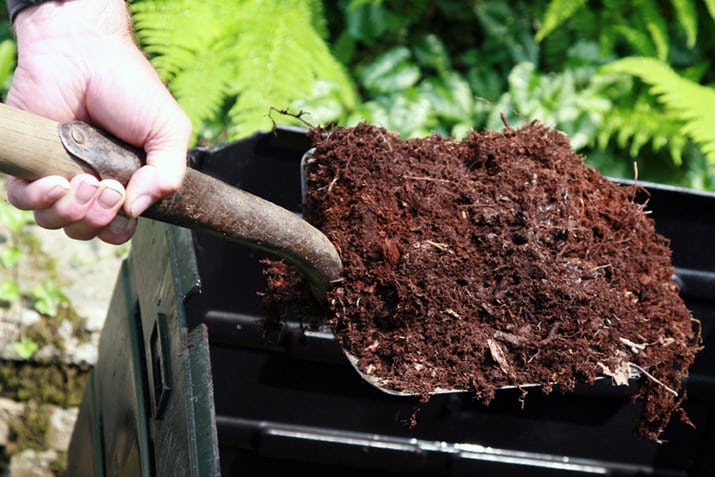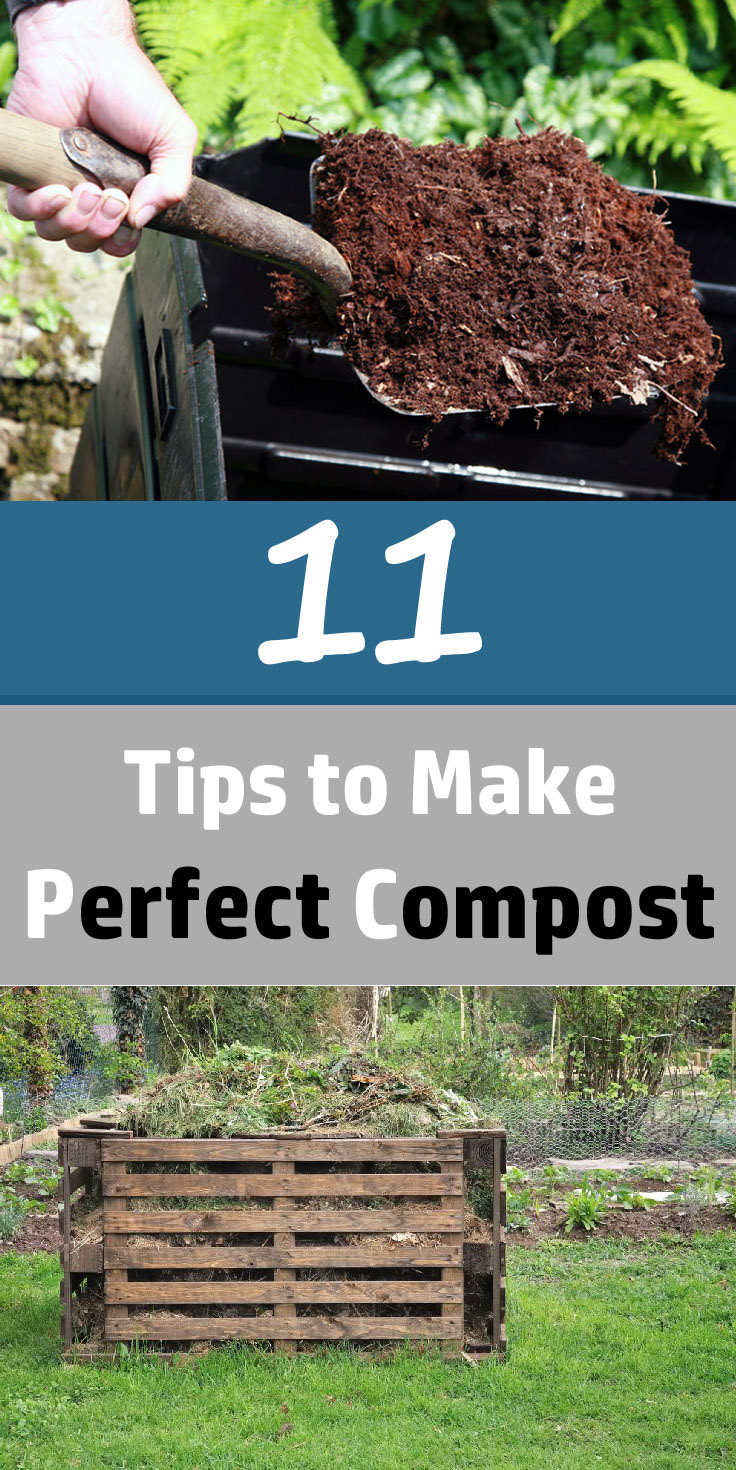Composting is certainly by far the main way to naturally enrich your soil and every gardener must do it. So here are 11 best composting tips that will make composting easier.
Composting Tips
1. Just add water
If your compost is not broken, add water until the consistency is similar to that of a moist wrung-out sponge.
If the compost is too wet, insert a few thin layers of absorbent materials. For example, sawdust, peat or hay until you reach the right consistency.
2. Shred and chop
The shredded or chopped materials decompose faster than larger pieces.
Before putting the materials in the compost bin, cut vegetable stems, break corn cobs in half and reduce the size of other large pieces, such as citrus peel or the melon skins.
3. The cold compost pile is not that bad
The compost pile that gets hot has the advantage of eliminating some of the weed seeds and harmful microorganisms, but it can be difficult to manage a hot pile if you do not use a lot of clippings or manure or fresh green grass.
Whereas the cold compost decomposes slowly and often retains more nutrients than hot pile.
4. Compost unique things
While you must avoid composting vegetable oils and majority of animal products except eggs, many other things are perfect for the compost pile.
Among the materials that you can try to compost are the crustaceans shells, wine bottle corks, matches, used chewing gum, nut shells, shredded paper and cotton balls of medicine bottles.
5.Pour the liquid
Instead of throwing them in the sink, pour cooking water of vegetables, flower bouquets water, and leftover coffee, tea or broth.
6. Turn your pile in garden
Grow squashes beyond your garden’s edge in compost heaps. Plant seeds of squashes, pumpkins or flowers like nasturtiums.
Learn more about this here.
7. Protect against flooding
To prevent your compost pile from getting too wet in the rain, place a layer of hay, dried grass or a piece of old carpet or something else that will cover the top of the heap.
When the compost is ready, store it in a box or in a dry plastic bag or sack until you are ready to use it in your garden.
8. Turn the compost regularly
Turn the compost regularly to provide the oxygen that is necessary for organisms that induce decomposition. The fork is a perfect tool to turn a compost pile.
9. Make layers
Make layers on the compost heap and take care when you mix materials to ensure fast decomposition.
Alternate high-carbon material layers, such as shredded leaves, straw, hay or wood chips, with high nitrogen content layers as grass clippings, garden trimmings, manure and leftover fruits or vegetables from your kitchen.
Always bury kitchen scraps and materials in the center to accelerate degradation and to protect them from flies and other bugs.
10. Sniff your pile
A compost pile should not relieve unpleasant odor. A nasty smell from the compost might be a sign that the compost does not get enough air or too much water or cool and wet materials.
To solve this problem, add more dry material that is rich in carbon, such as shredded leaves, twigs, sawdust or hay.
11. Improve air flow
To improve the flow of air to a heap of compost, insert a perforated PVC pipe in the center of the cluster.
Also Read: Composting in an Apartment Balcony





Thank you for explaining that you should place a layer of hay or dried grass on top of the heap to prevent it from flooding or getting wet. We are setting up a composting bin in our backyard next to our garden and have been wondering how to take care of it during the spring showers that should be coming soon. We’ll have to try this out, since it seems like a really simple way to keep it dry.